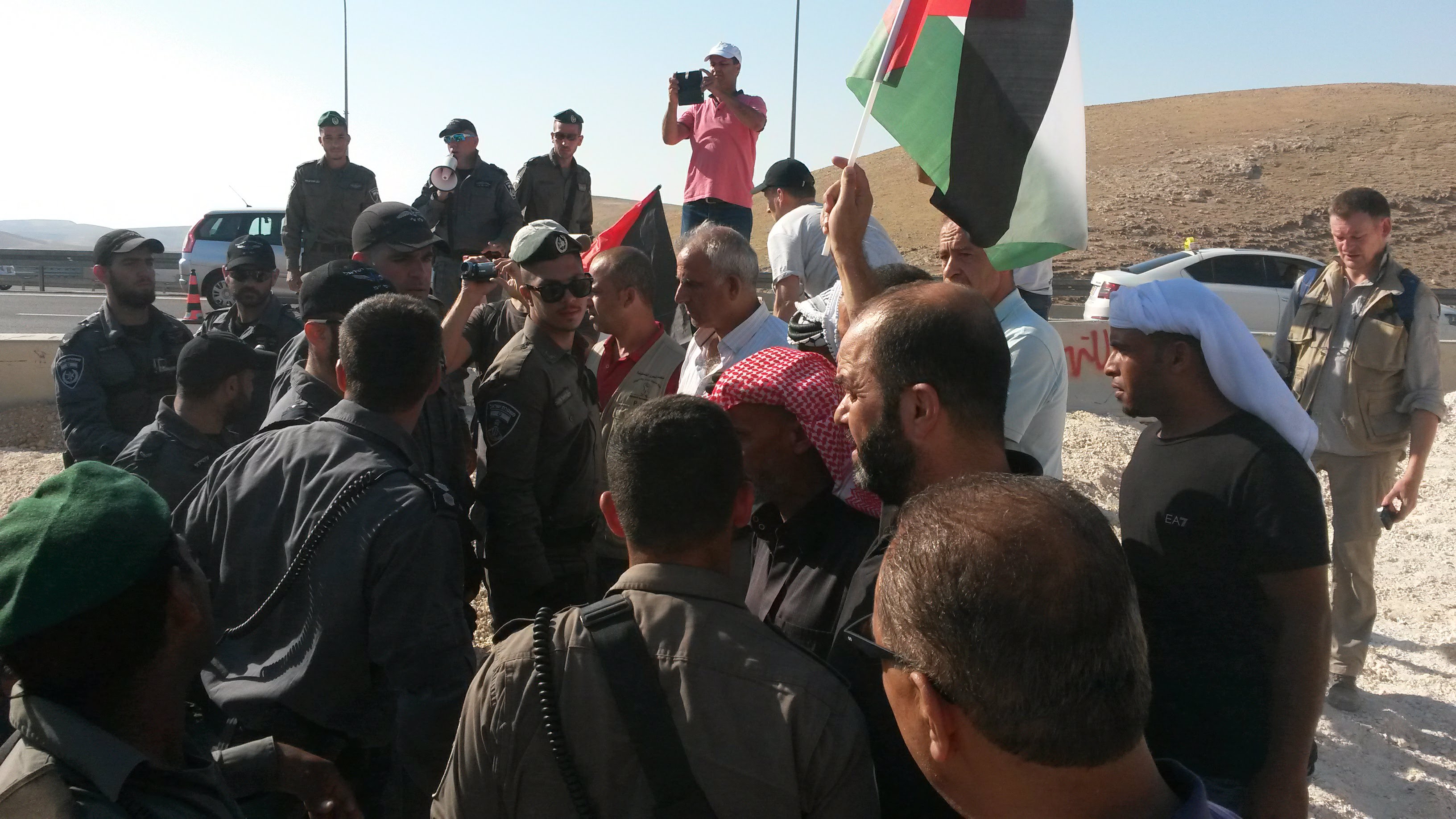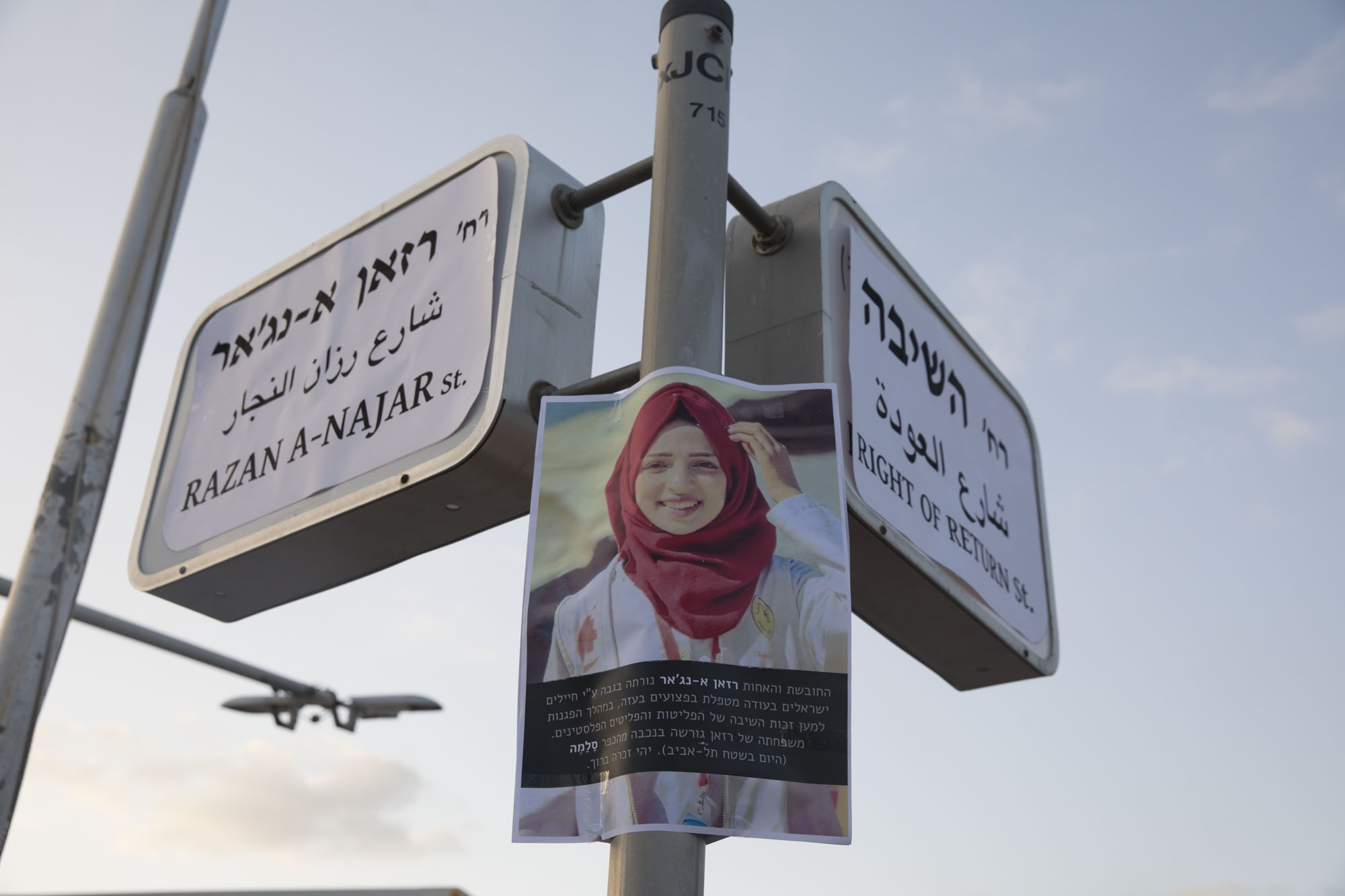Category: Reports
-
Israel begins demolition of Khan Al Ahmar and uses violence against peaceful protesters
International Solidarity Movement, Khan Al Ahmar, Palestine Friday 6th June This week, Israeli forces began preparing for the demolition of the Bedouin village Al-Khan Al-Ahmar, in between Jerusalem and Jericho in the West Bank of Palestine. They met village residents and protesters with extreme violence on Wednesday and Thursday in an attempt to clear the…
-
Salama remembers Razan
In response to a call for solidarity from Gazan women, a Jewish activist group dubbed “Return” gathered to hold a memorial for Razan AlNajar, at the location of her village of origin, Salameh. While thousands of women marched towards the border in the Saja’iya area in Gaza, the activists held a ceremony honoring Razan and the protesters…
-
‘Our kites fly over the invisible borders and reach what we cannot’: ISM speaks to Yasmeen Najjar at the annual kite festival in Burin
29th June 2018 | International Solidarity Movement, Al-Khalil team | Burin, occupied Nablus Burin is a small village located seven kilometres to the southwest of Nablus in the occupied West Bank, and is home to around 3000 people. The village is surrounded by multiple illegal Israeli settlements, and is subjected to constant violent settler attacks…



